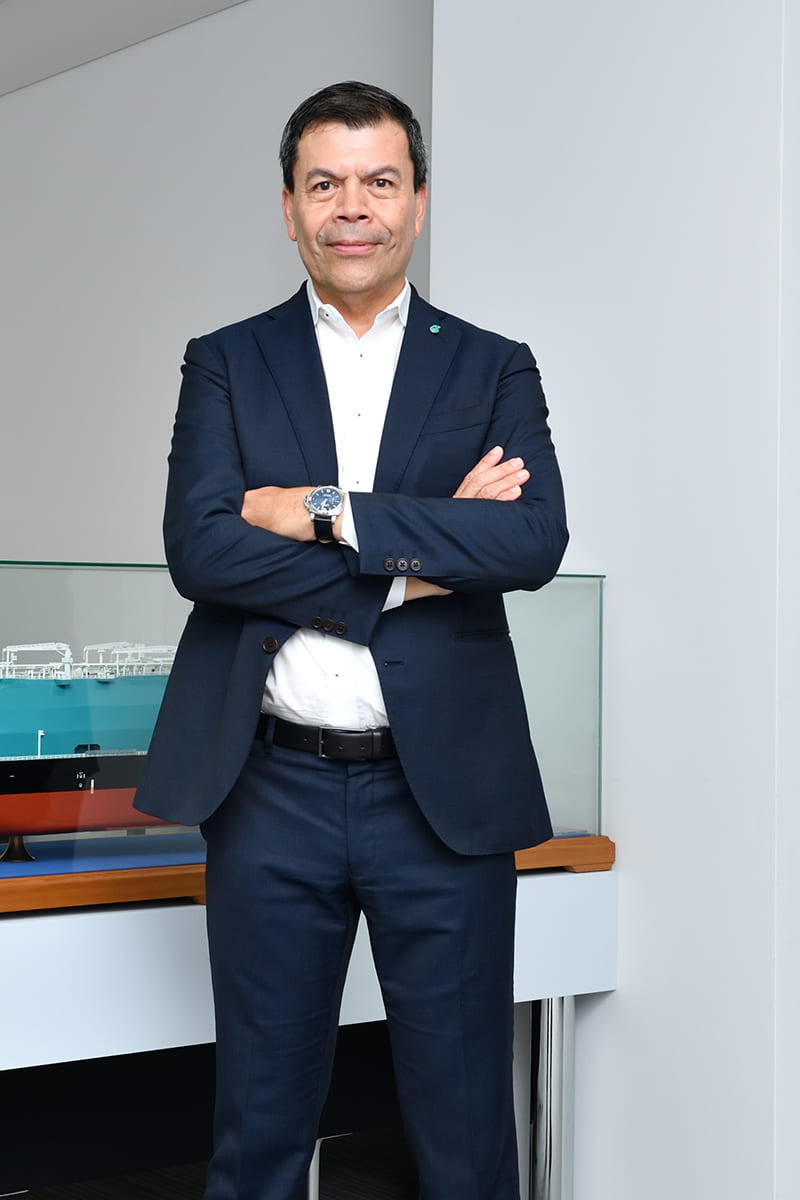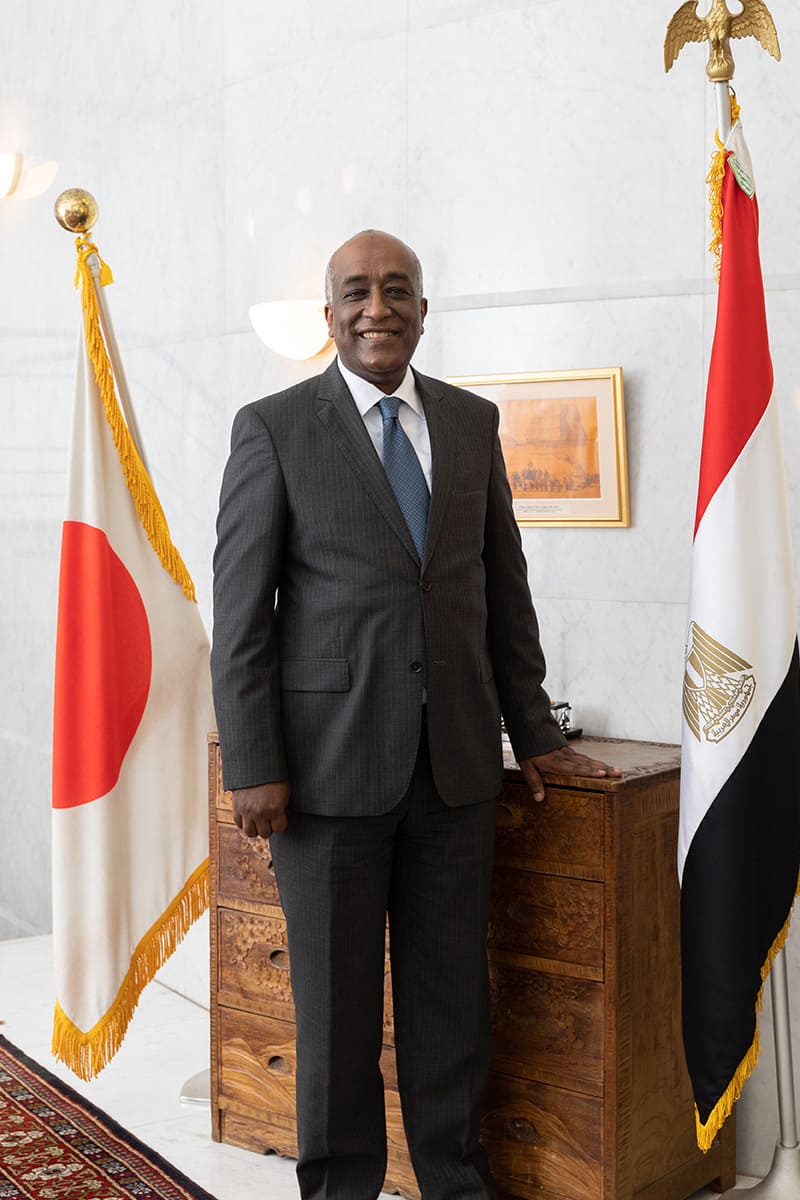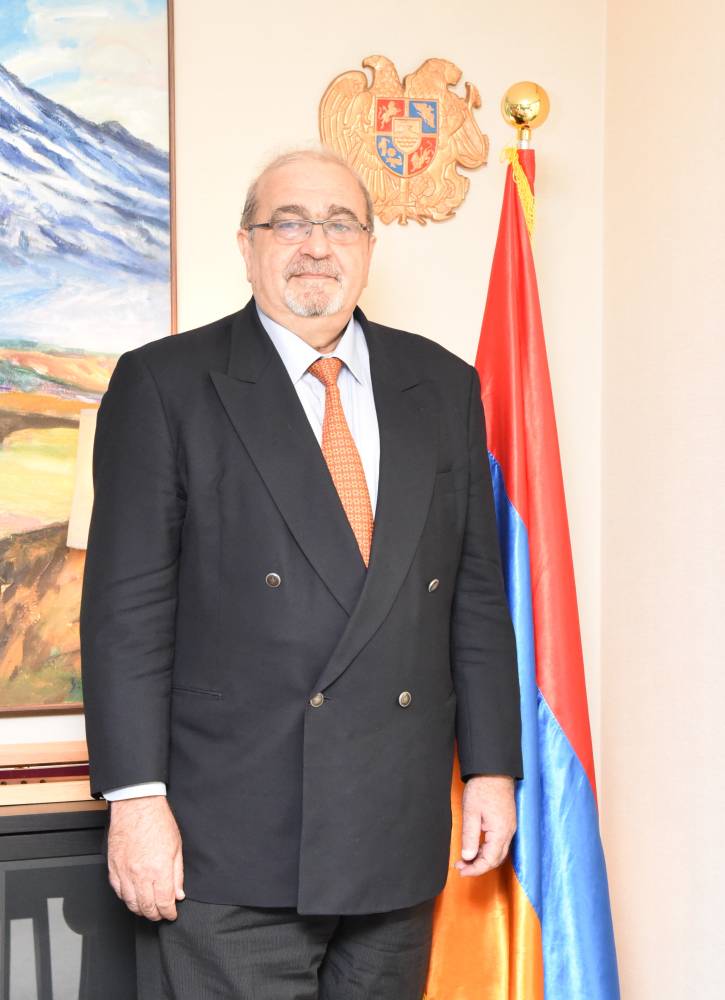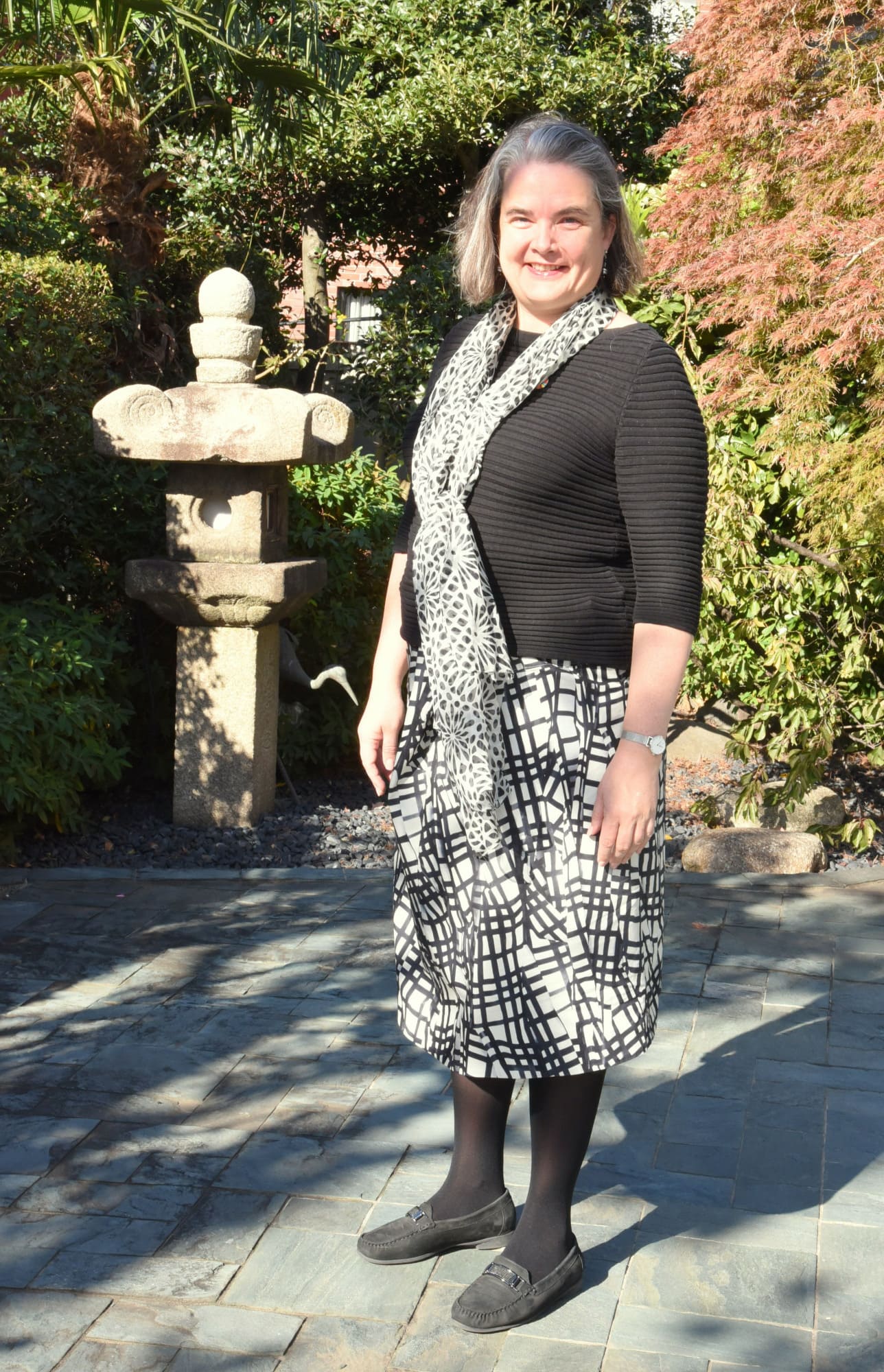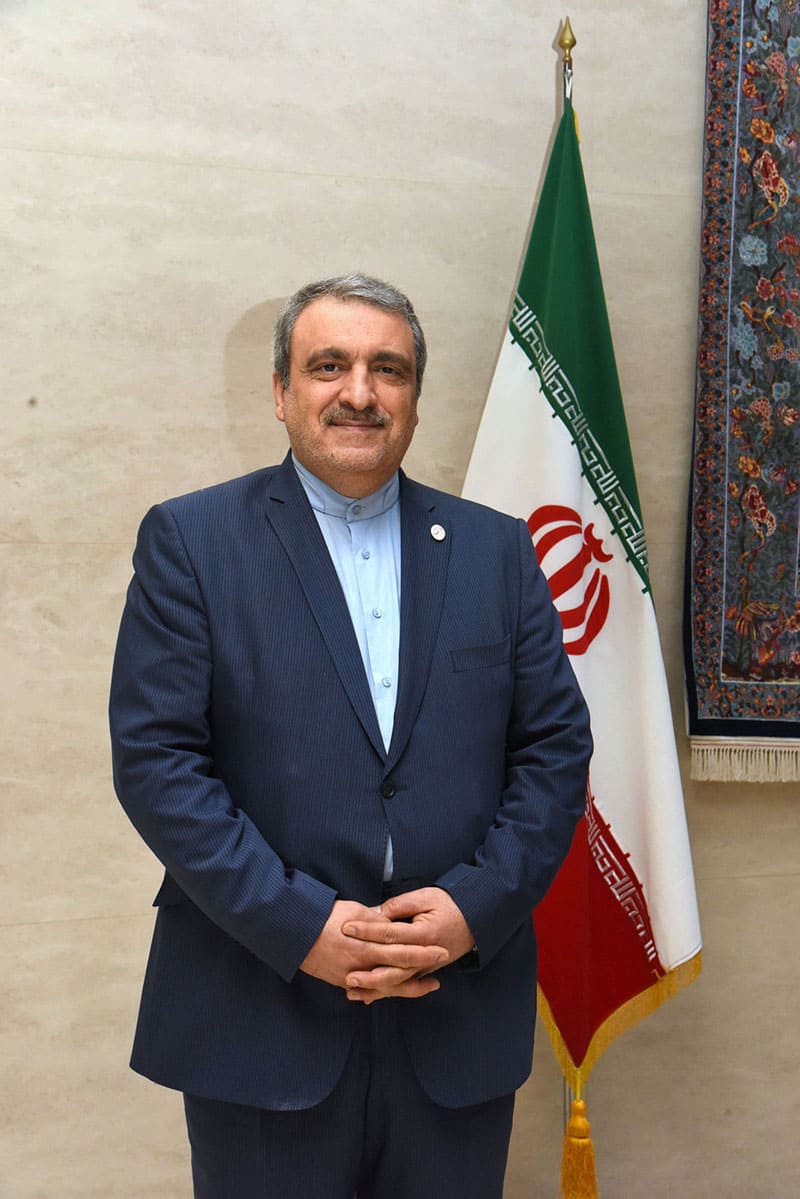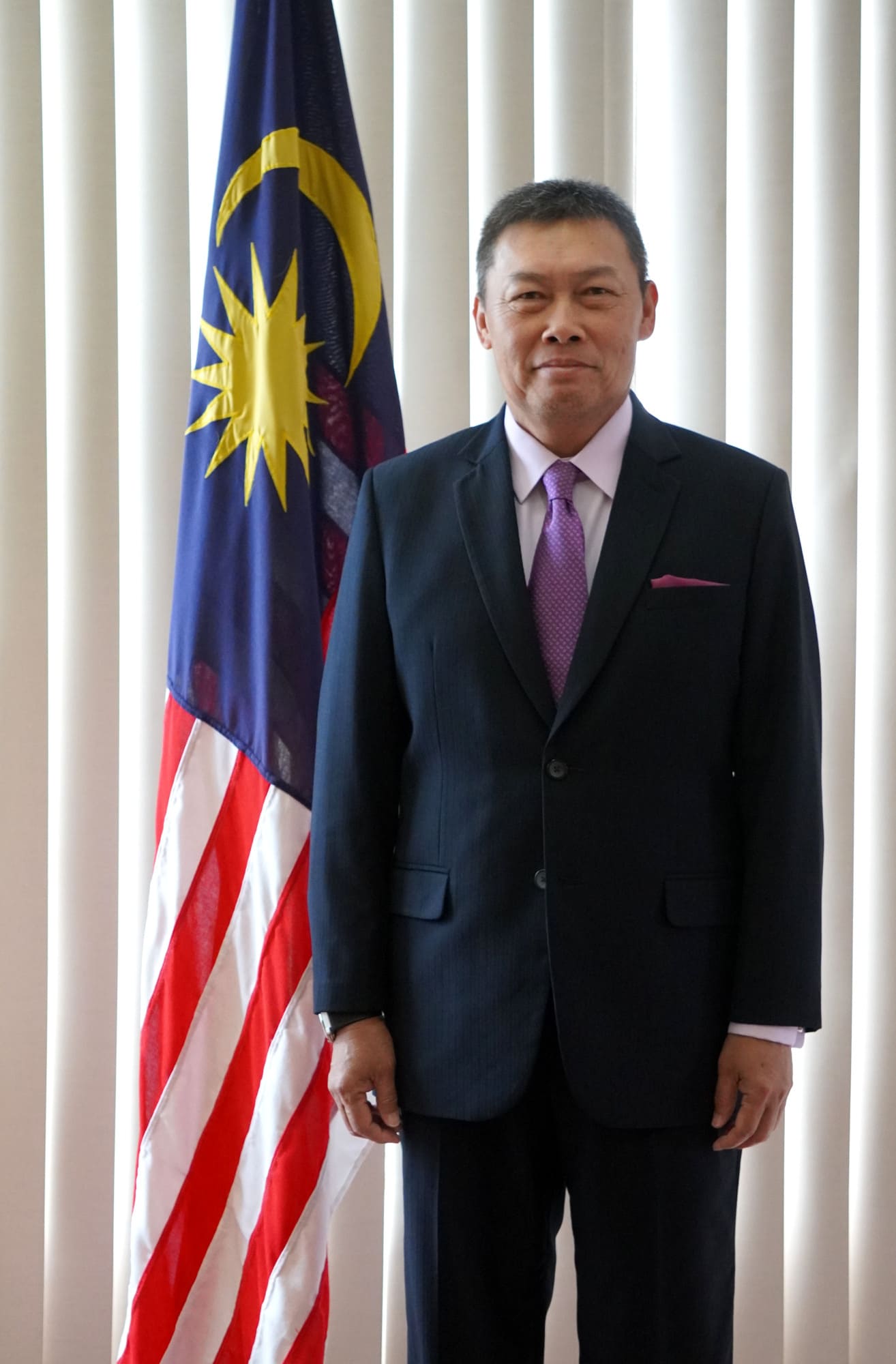
September 22, 2019
A lifelong commitment to cross-cultural appreciation
Malaysian Ambassador Dato’ Kennedy Jawan on bonds and beginnings
BY JACOB REED
CONTRIBUTING WRITER
- Name: Dato’ Kennedy Jawan
- Title: Ambassador of Malaysia
- URL: https://www.kln.gov.my/web/jpn_tokyo/home
- DoB: Nov. 19, 1961
- Hometown: Sibu, Sarawak, Malaysia
- Years in Japan: 4
Malaysian Ambassador Dato’ Kennedy Jawan is an experienced man of the open road with wisdom and practical advice for any aspiring or current world travelers.
Possessing a beaming smile and friendly demeanor, he plays the part not of a stuffy office bureaucrat, but of an approachable, humble and understanding man who is proud to serve his country as its ambassador to Japan.
“Understanding of other people is a very important part of foreign affairs,” said Jawan as he considered what initially motivated his career choice. “It was kind of accidental for me. When I look back, I think an interest in traveling and meeting up with people from different backgrounds and cultures were some of the main factors.” Jawan spent a cherished six years in Kentucky from 1979 to 1985 where he completed his higher education and forged the bonds of lasting friendship. His international circle of friends in university from around the world made a strong impression on him, helping to solidify his value of mutual understanding and willingness to embark on a lifelong career in the foreign service. “But I am also quite lucky — it isn’t so easy to just desire to join the foreign service; there are a lot of criteria that the government looks at — but of course, I am not privy to what the criteria are because I’m not a recruiter,” he added with a laugh.
When thinking about his accomplishments, Jawan humbly sees himself as a servant to his king and country. “It’s not really my place to say, ‘I have achieved this, and I have achieved that.’ I’m just doing my job as a government servant. But I always try to do my best.” He sees his job as being primarily about strengthening bonds and understanding between the people of Malaysia and Japan.
Japan is seen as a locus for development of artificial intelligence, robotics and other technology that are part and parcel of Japan’s proposed “Society 5.0.” Envisioned as the next era of human civilization, Society 5.0 is a plan that leverages all of the affordances and technology of the information age to improve all facets of people’s lives. Jawan hopes that Malaysia’s renewed Look East policy can tap into this potential and help Malaysia “develop from the Japanese experience,” as well as encourage more Malaysians to acquire knowledge and skills from Japanese universities. In Jawan’s view, it would be cost-effective and beneficial for more institutions to follow Tsukuba University’s lead and open branch campuses in Malaysia. In that way, Malaysians would have easier access to Japanese higher education, while at the same time providing those universities with new students.
But what can Japan learn from Malaysia? Jawan emphasized halal food production’s growing importance in light of Japan’s expected tourist increase due to the Tokyo Olympics in 2020 and Osaka Expo in 2025. “A substantial number of tourists will be Muslim, and in terms of halal products, Malaysia is the number one market, so that is something we can offer to Japan.”
Jawan hopes that Japanese and Malaysians will develop an even greater understanding and appreciation for each others’ cultures through not only large-scale events like the Tokyo Olympics, but also country-specific ones like the Malaysian Fair to be held over three days from Nov. 2 to 4 in Shinjuku Central Park. Jawan talked about it excitedly; this will be the second time the event has been held and anyone is welcome to join. “I have no doubt that it will contribute to greater bonding and strengthening of ties between the two countries as a whole.”
Jawan’s experience abroad and growing up in a Malaysian longhouse with upward of 60 different families living in close proximity taught him the value of tolerance. If you want to travel, Jawan considers it vital to “learn about the country — its culture, its customs, and the do’s and don’ts.” On the other hand, Jawan recounted a funny episode in July 1991, in which he went to Chile for a week. Assuming it would be hot in South America, he did not bring a coat. But when he and his entourage arrived, “we were shivering!” Not considering the hemisphere cost him his comfort, but it was a “lesson learned,” he said.
Jawan is no stranger to Japan, but things have changed since he worked at the embassy in the early ’90s. “Back then, you saw a more homogenous society, but now you see quite a number of foreign citizens who are working, students, or just living in Japan. Jawan felt that there was more of a language barrier then as well, or perhaps ‘shyness’ on the part of both Japanese and non-Japanese to communicate,” he said. “For example, nowadays, Japanese are willing to answer your questions if you are asking for directions.”
Though he admits that his Japanese is rudimentary, that doesn’t stop him from enjoying life in Japan. “On weekends, I like to drive along country roads.” A true man of nature who would bathe in the river near his home as a child, Jawan deliberately does his best to avoid highways. “They cost a lot, and secondly, you don’t see things. When you drive along country roads, you go through a lot of small towns and see interesting places.” He doesn’t consider it inconvenient at all, as rural locations have all of the same amenities as urban ones. And while the roads may be smaller, “they still connect from one place to another just as easily.”
Overseas roles span several continents
Dato’ Kennedy Jawan was born in the small town of Sibu in Sarawak, Malaysia, and spent his early years living with his family in a traditional riverside longhouse. Shortly after moving to Kuala Lumpur, he embarked on his first overseas trip to Kentucky in the United States where he completed his higher education and developed a strong interest in foreign affairs.
Upon Jawan’s return to Malaysia, he began his career in earnest and served both at home and abroad. His first position outside of Malaysia was in Japan from 1992 to 1995 where he served as the embassy’s second secretary. Following this, he went on to fulfill embassy roles in other places overseas, including Myanmar, Washington D.C., South Africa and Spain. Most recently, he returned to Japan in April as the ambassador of Malaysia.
In his free time, he likes to play golf with friends and drive through the countryside with his wife and four children.

